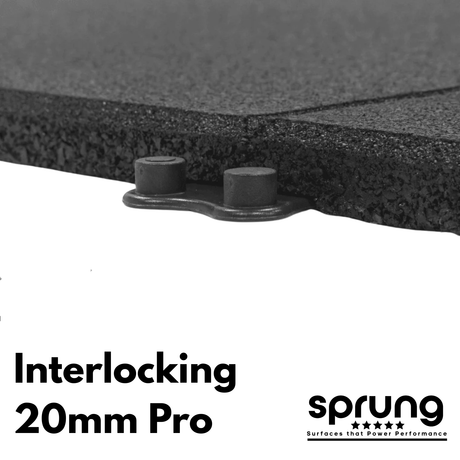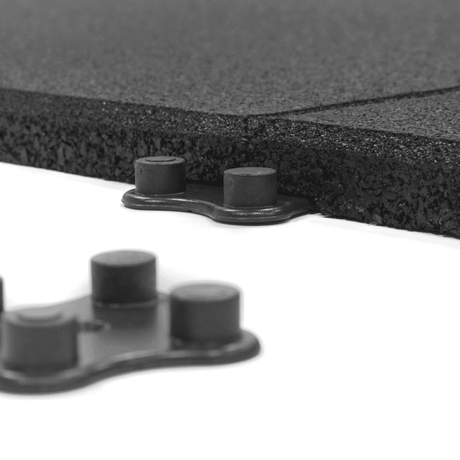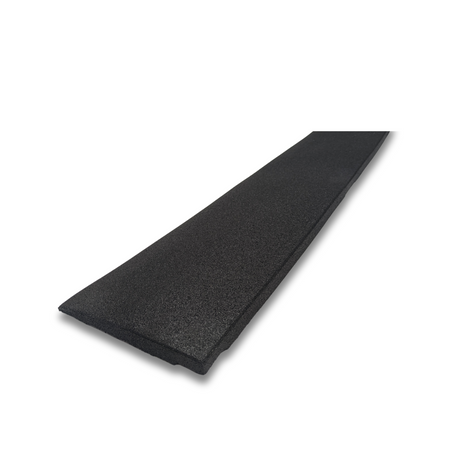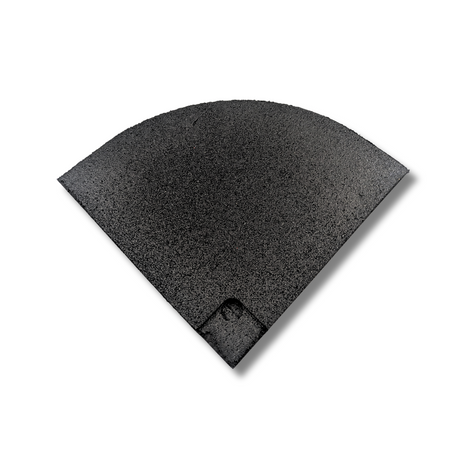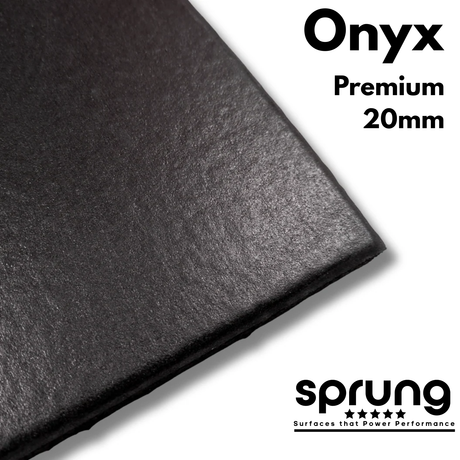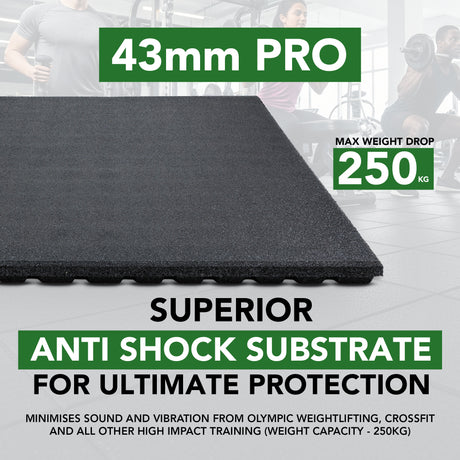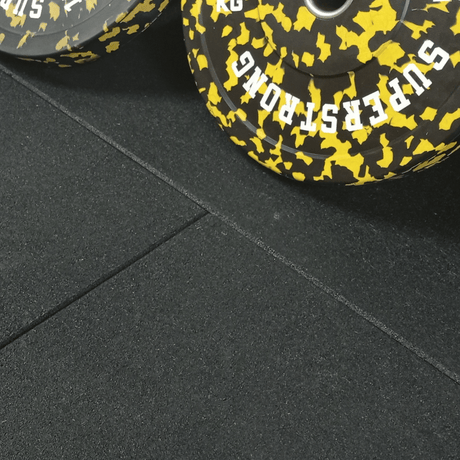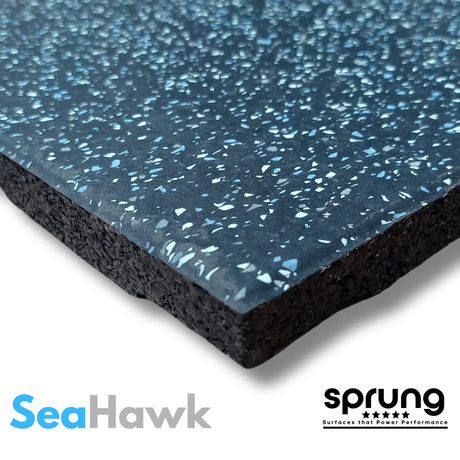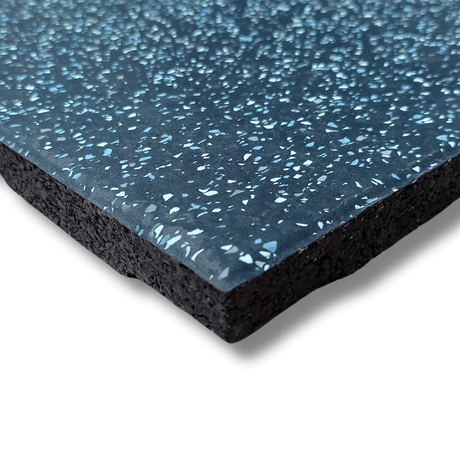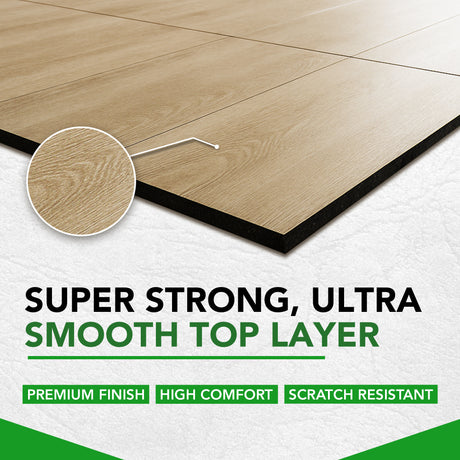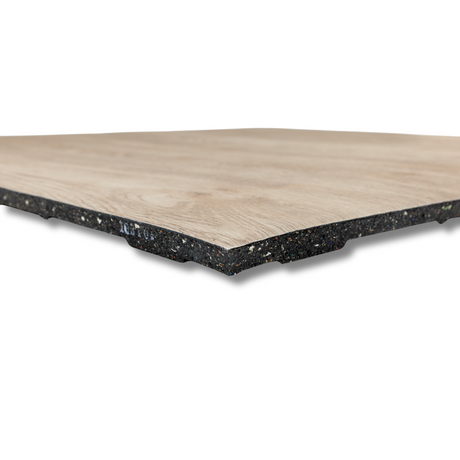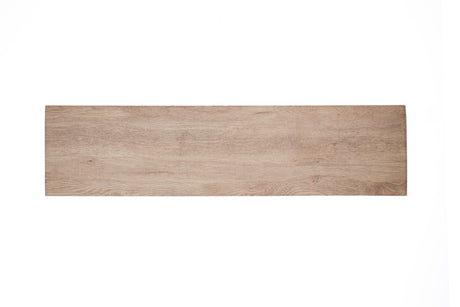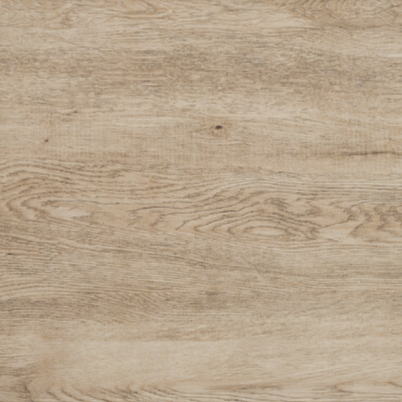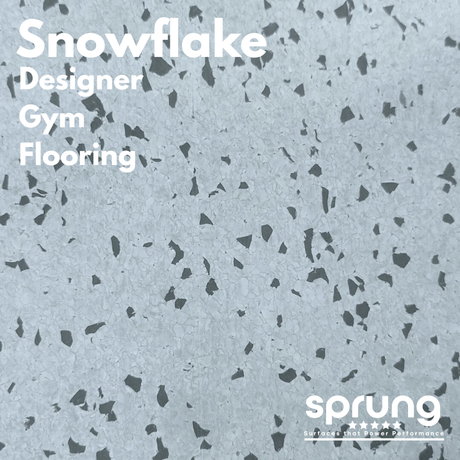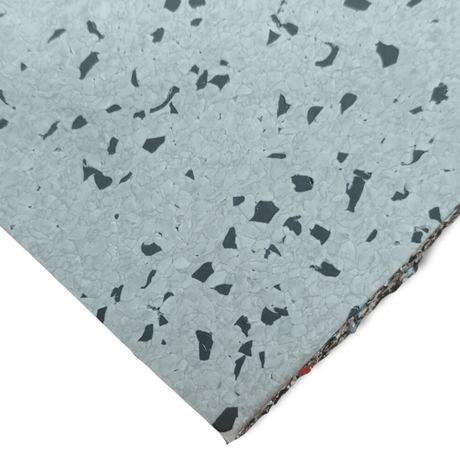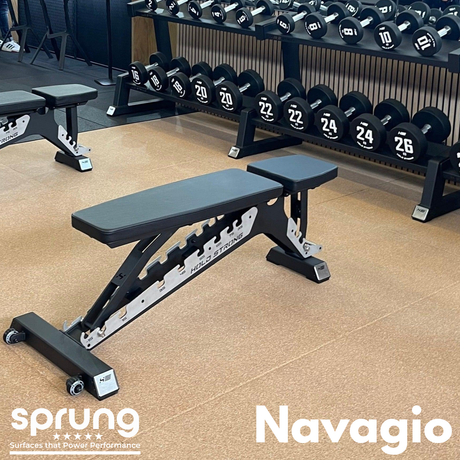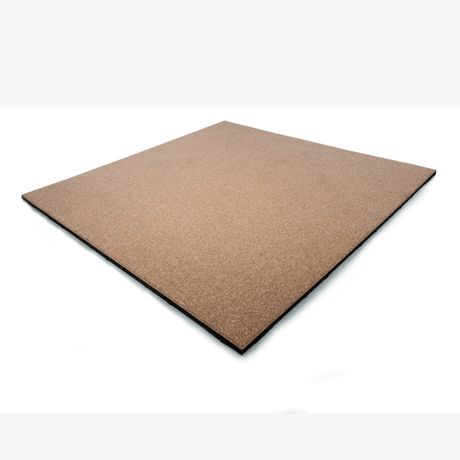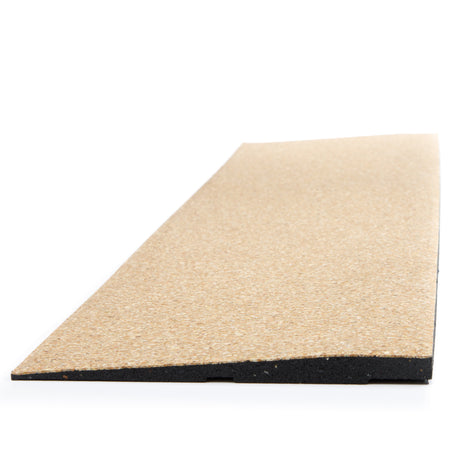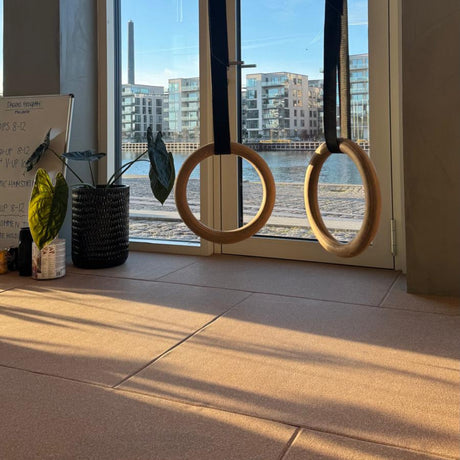[UPDATED in 2025]
Whether you’re walking, jumping, squatting, or doing burpees, your fitness flooring should provide the level of cushioning and slip-resistance you need to work out. To safely perform exercises, you need the right flooring. There a ton of different workouts from kickboxing and yoga to HIIT and weightlifting, they all benefit from having the correct type of flooring.
We would love to tell you the exact flooring you need, but the truth is that the best flooring solution depends on a few different factors. What works for one project may not be ideal for another. A commercial or home gym is a big investment. Flooring is a big part of the many things you will need to consider.
Keep reading to find out the best type of fitness flooring and how to find the right solution for your project.
Table of Contents
4 Must-Have Qualities of Fitness Flooring
The Best Type of Fitness Flooring
Installation: Gym Flooring Rolls vs Tiles
4 Must-Have Qualities of Fitness Flooring

Your flooring will control what you can safely use and will determine the level of impact you can practice. For example, if you choose very light gym tiles and plan to use Olympic weights, you may not get adequate sound absorption and the tiles could prematurely wear. However, if you invest in thicker, high-quality rubber flooring, it can handle an intense free weights session, protecting your subfloor and minimise noise and vibrations.
When thinking about your fitness flooring, here are four must-have qualities to look out for.
Non-Slip
A non-slip surface is important in a gym. As you naturally move through your workout, a non-slip surface creates a good level of traction. This helps to reduce any slips and falls. Fitness flooring provides a safe environment for exercise.
The Sprung 20mm PRO Tile from our PRO Tile gym flooring range is one of our most popular options for gyms. With optimum shock absorption and non-slip safety, it creates a high comfort surface with plenty of traction.
Durable
Your commercial gym flooring should be durable enough to withstand years of exercise and use. High-intensity workouts are no match for premium quality flooring. A material such as concrete may be durable in the long-term, but it comes with no shock absorption qualities. Drop a heavy dumbbell on concrete, and it may result in damage. This is why it’s so important to find a flooring solution that is not only durable but shock absorbent, non-slip, and water-resistant.
Shock Absorbent
High impact exercises like running, jumping, and burpees are great for your health. But these types of activities can be tough on the body. If you’re continuously jumping and running for extended periods, that’s a lot of impact on your knees, ankles, and joints. For impact exercise, you want an adequate level of shock absorption while providing a firm surface to work out.
Rolls of rubber flooring or interlocking gym tiles are a good solution as they provide plenty of shock absorption and look great. Sprung Jet Black Rubber Roll constructed from a smooth HD rubber is a smart and straightforward option for your fitness flooring solution.
Easy to Maintain
When investing in good quality fitness flooring, make sure that it’s easy to maintain. Given the naturally hot and sweaty environment that comes with fitness, dirt can build up quickly on the floor. Your fitness flooring should be easy to clean and maintain. A water-resistant surface means you will be able to wipe down the flooring without it absorbing the water. This is especially useful in a commercial setting where you will need to clean the floor regularly.
The Best Type of Fitness Flooring

When it comes to fitness flooring, you have a few different options. The best material for you really depends on how you’re going to use the space, the size of the area you’re covering, and the type of equipment you plan on installing.
Before talking about the best type of fitness flooring, let’s talk about options you should actively avoid. When a surface isn’t designed for exercise and fitness, it’s more likely to lead to injury and damage to equipment. If you’re buying cheap rubber tiles not designed for fitness, typically, the material won’t be the right density for high impact exercise and heavy weights.
Perhaps one of the most important things to consider when selecting fitness flooring, is thickness, especially for areas where there are high levels of impact and free weights. A versatile thickness for most gym activities is 20mm and above. For areas where no weights are used, perhaps just gym machines, a lighter thickness is suitable. We would recommend rubber gym rolls from 6mm and above or lighter tiles in 11mm or 15mm.
Rubber Tiles & Rubber Rolls

One of the best options for fitness flooring to support your workout style is rubber flooring. This is because it’s available in a range of thicknesses and styles. It starts at about 11mm thick and goes up to 63mm. You can choose between tiles, rolls, and interlocking tiles. Rubber is usually the go-to choice for commercial gyms because of its versatility.
Customer Insight:
"I wanted a fluid, cohesive look to my PT Studio so opted for gym roll in a wonderful flecked design. So pleased with the finish and it's really easy to clean!"
Wood Gym Flooring
If you’re looking for something specific for dance, yoga, or sports, then wood flooring is perfect. Sprung Wood Gym Flooring features a shock-absorbing underlay as well as a 5G click system for simple and quick installation.
Gym Sled Track and Functional Training Turf
Another flooring option is a sprint or sled track. If you plan on doing sled pulling and sprinting, then artificial turf is a great choice. It adds a bold statement of colour in a gym and adds a new layer of versatility to a facility.
Installation: Gym Flooring Rolls vs Tiles
Now that you have a better idea of the type of fitness flooring to use, you can make some final decisions. With rubber flooring, you have two choices: rolls and tiles. Gym rubber tiles tend to come in either a standard tile or with an interlocking system. Depending on how you plan to use the space and the size you have available, one option may suit you more than another.
If you’re opening a commercial gym, you may find that rubber fitness rolls will work for specific areas of your facility, for example, rubber rolls are a great solution for cardio spaces and spin studios. They cover large areas (with less waste) and come in lighter weight options which support heavy equipment. For free weights zones, heavier rubber tiles will provide the shock and sound absorption you need.
You may prefer interlocking tiles or puzzle tiles for a home gym as they are super simple to install and don’t require adhesive. They are suitable for small and large spaces and have a seamless and professional finish.
There are pros and cons to both types of flooring which we explain in further detail in our guide on how to choose between rubber gym flooring tiles and rolls.

Final Thoughts
The best fitness flooring is a solution that works for your specific set-up in mind. Consider your intended activities, the weight increments you plan to use and the type of location before deciding on the type of fitness flooring for your workout space.
Ready to invest in top quality fitness flooring? Browse our full range for a wide choice of colours, styles and thicknesses.

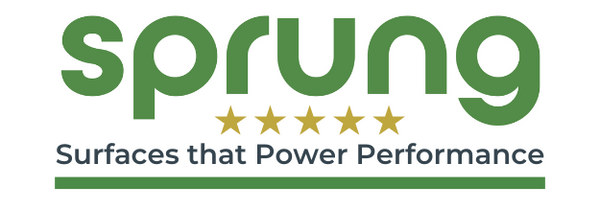


![What's The Best Type Of Fitness Flooring? [UPDATED]](http://www.gym-flooring.com/cdn/shop/articles/5_Benefits_of_Family_Home_Fitness_1000_x_600_px_74_520x500_3d96799d-5936-4fc1-87aa-2009a6a691b5.png?v=1755694061&width=1600)


